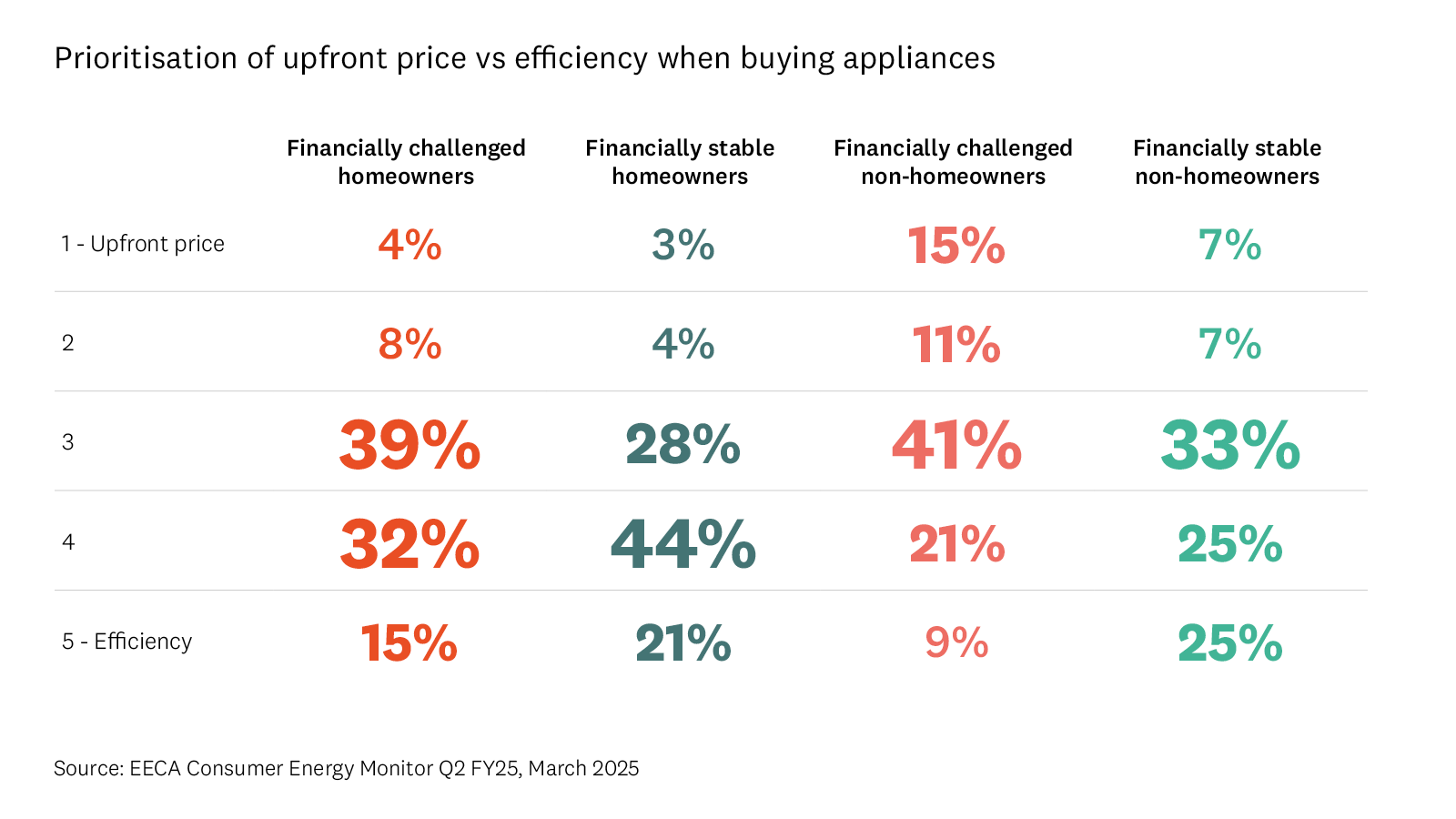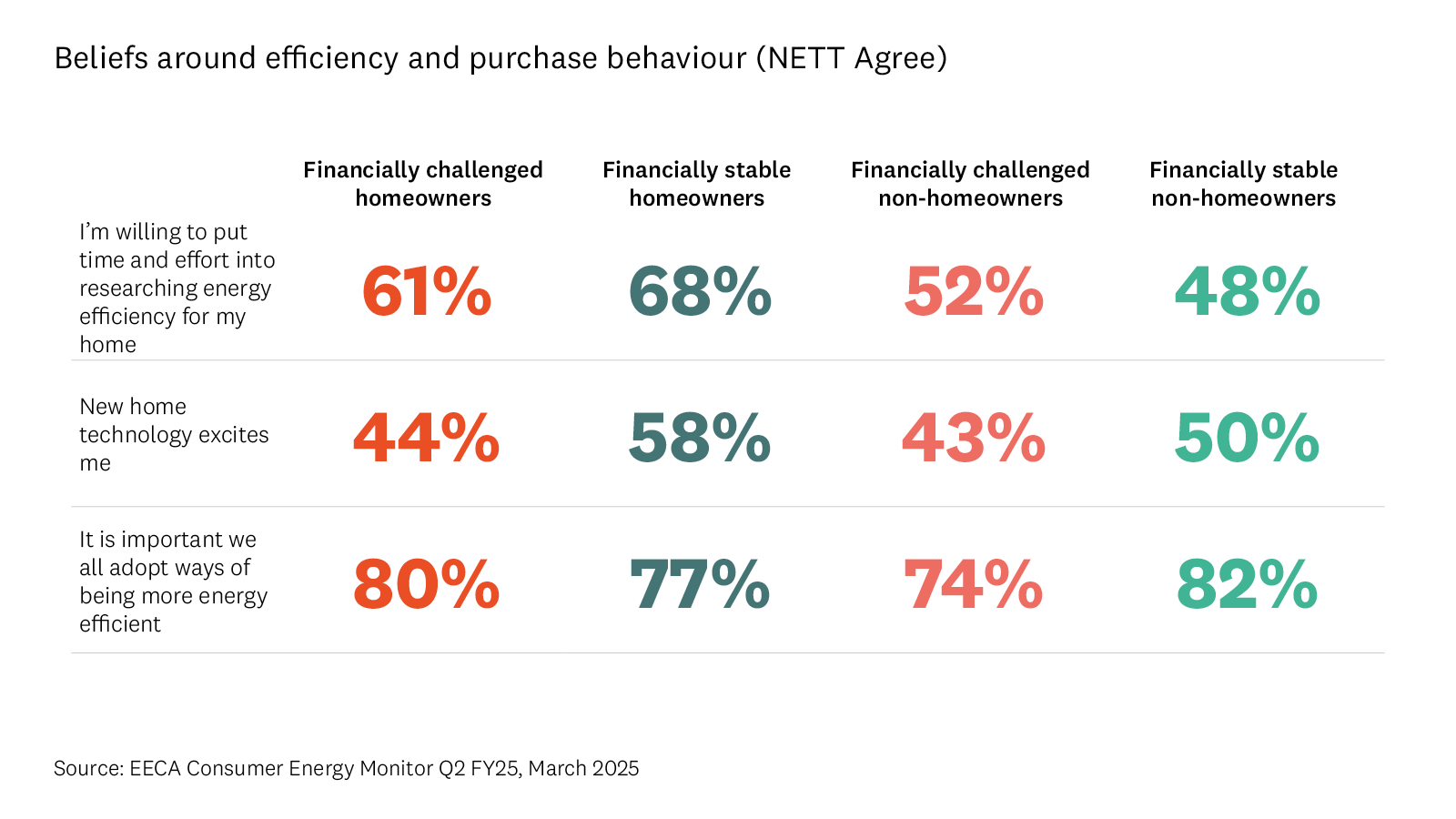The Consumer Energy Monitor captures data on how New Zealanders are interacting with energy in their homes, both as a snapshot and how this develops over time. Alongside broader behavioural and attitudinal trends, this on-going research allows EECA to give evidence to help shape its programmes and understand the impact of its interventions.
Overview
This research provides insight into how New Zealanders are using energy in their homes, as a snapshot, and over time.
Between 24 October and 15 December 2024, EECA surveyed 790 New Zealand adults about their energy use, behaviours and attitudes. The sample was nationally representative based on age, gender and region.
In total, a sample of 1,550 survey responses were analysed in this report, including 760 responses from the previous quarter.
Key Findings
This research did a deep dive into the relationship between homeownership and financial security and energy. It found that home ownership and financial position are effective ways of differentiating groups of New Zealanders in their attitudes and behaviours around energy usage.
Across many metrics, those that own their own home and categorise themselves as financially stable tend to be more empowered in their actions, energy use and understanding of energy. In contrast, those who do not own their own homes and say they are financially challenged have a greater need to take action, and also stand to gain the most from this.
Electricity is seen as expensive, despite being viewed as ‘efficient’.
Just 11% of electricity users see electricity as being ‘cheap’ compared to 20% of gas users viewing gas as the same. However, the perception of electricity as ‘efficient’ is much higher than gas with 55% of electricity users associating it as ‘efficient’ versus 37% of gas users associating efficiency with gas.
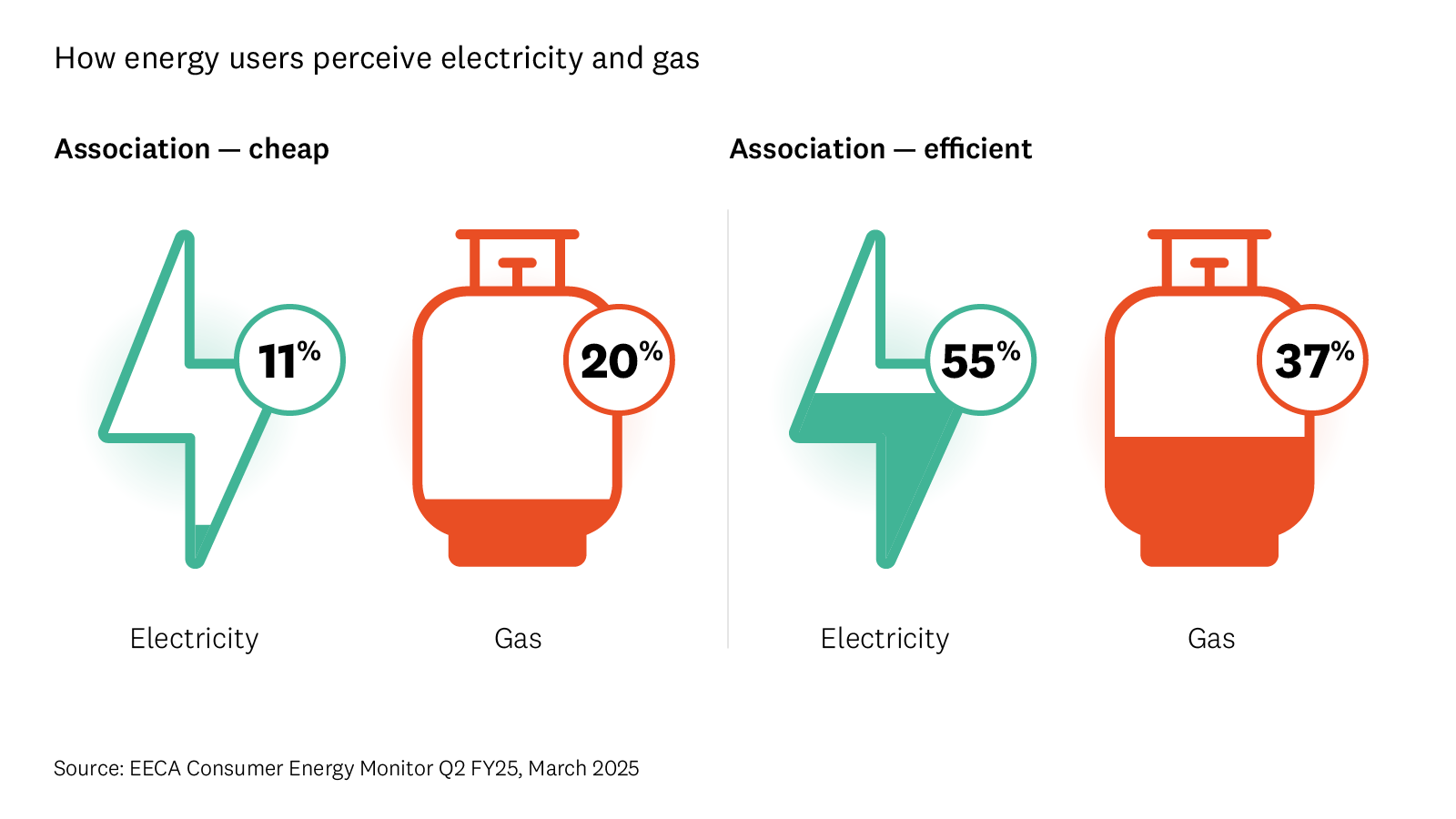
Home ownership and financial stability play a role in New Zealanders’ relationship with energy.
Segments that are financially challenged are more likely to worry about the lack of control over their energy bills. Financially challenged homeowners are also more likely to cite cost as the main reason for thinking about their energy use.
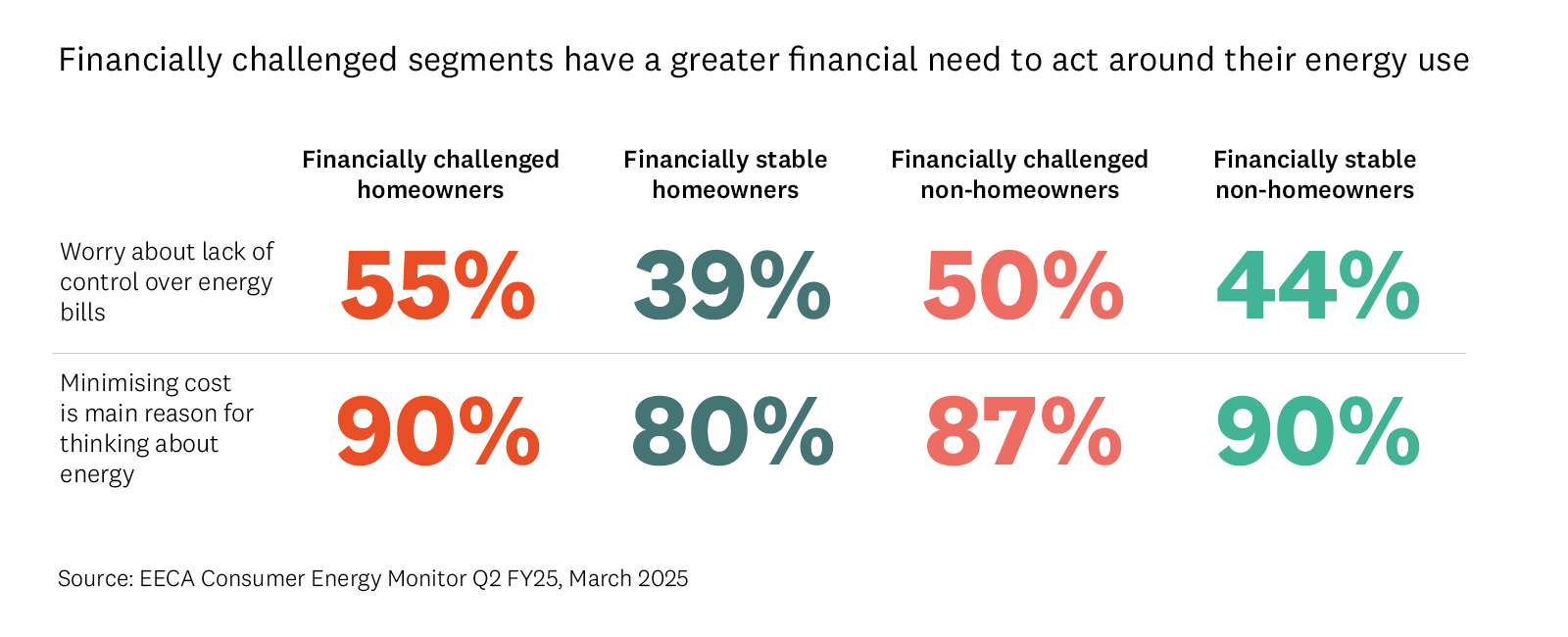
Homeowners generally feel more empowered around energy than non-homeowners.
Nearly two-thirds (63%) of homeowners feel either confident or very confident about their ability to understand and manage their energy use, including optimising, controlling or reducing their energy use. Contrasting to this, just over two in five (44%) non-homeowners share this confidence.
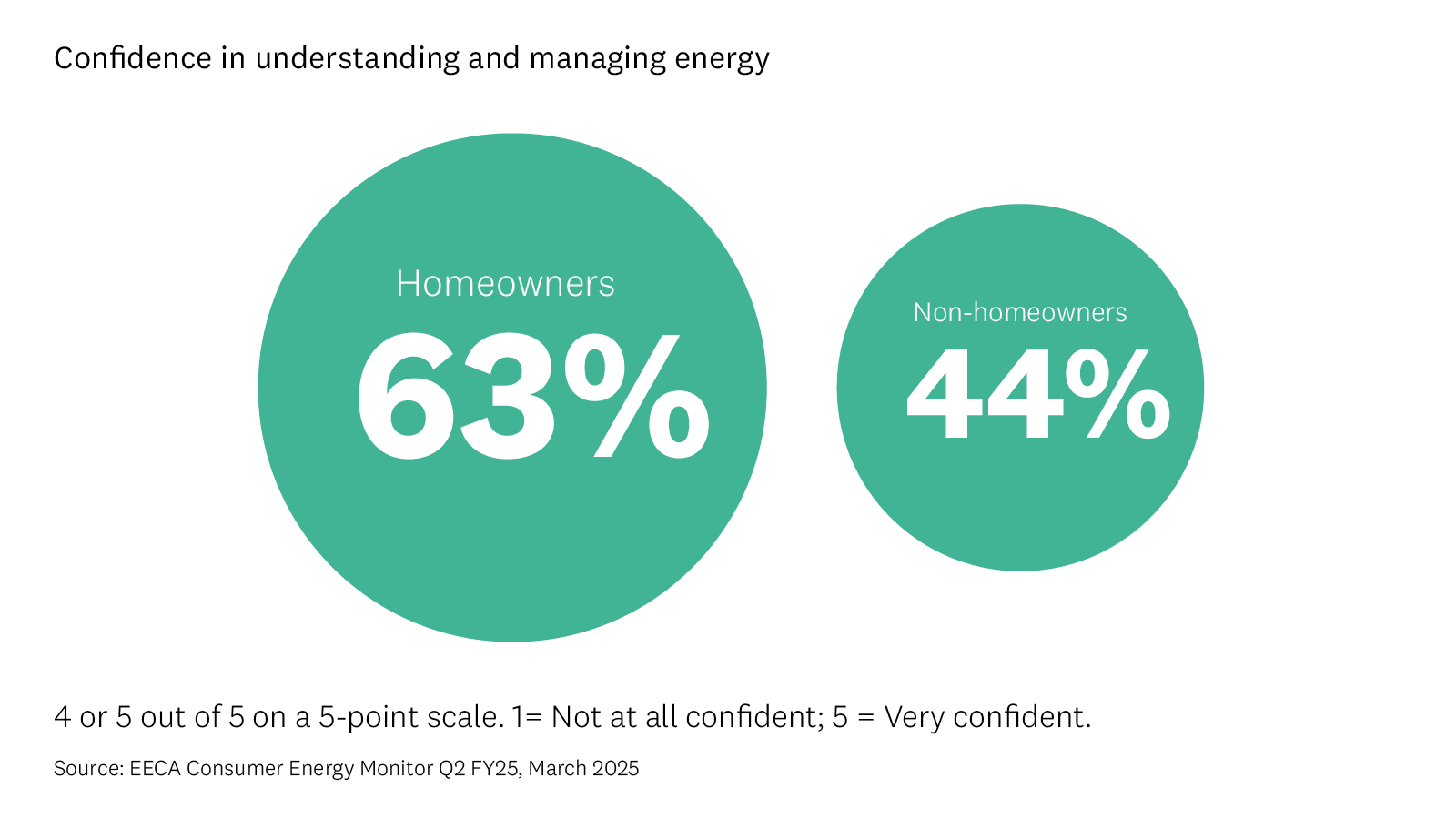
Homeowners are more likely to give their home energy use greater thought.
Nearly one in five (18%) homeowners give their home electricity and gas use in the home ‘a lot’ of thought. This is significantly lower among non-homeowners where one in ten (10%) give their energy use a similar level of thought. Non-homeowners are also more likely to give their home energy use ‘not very much’ thought.
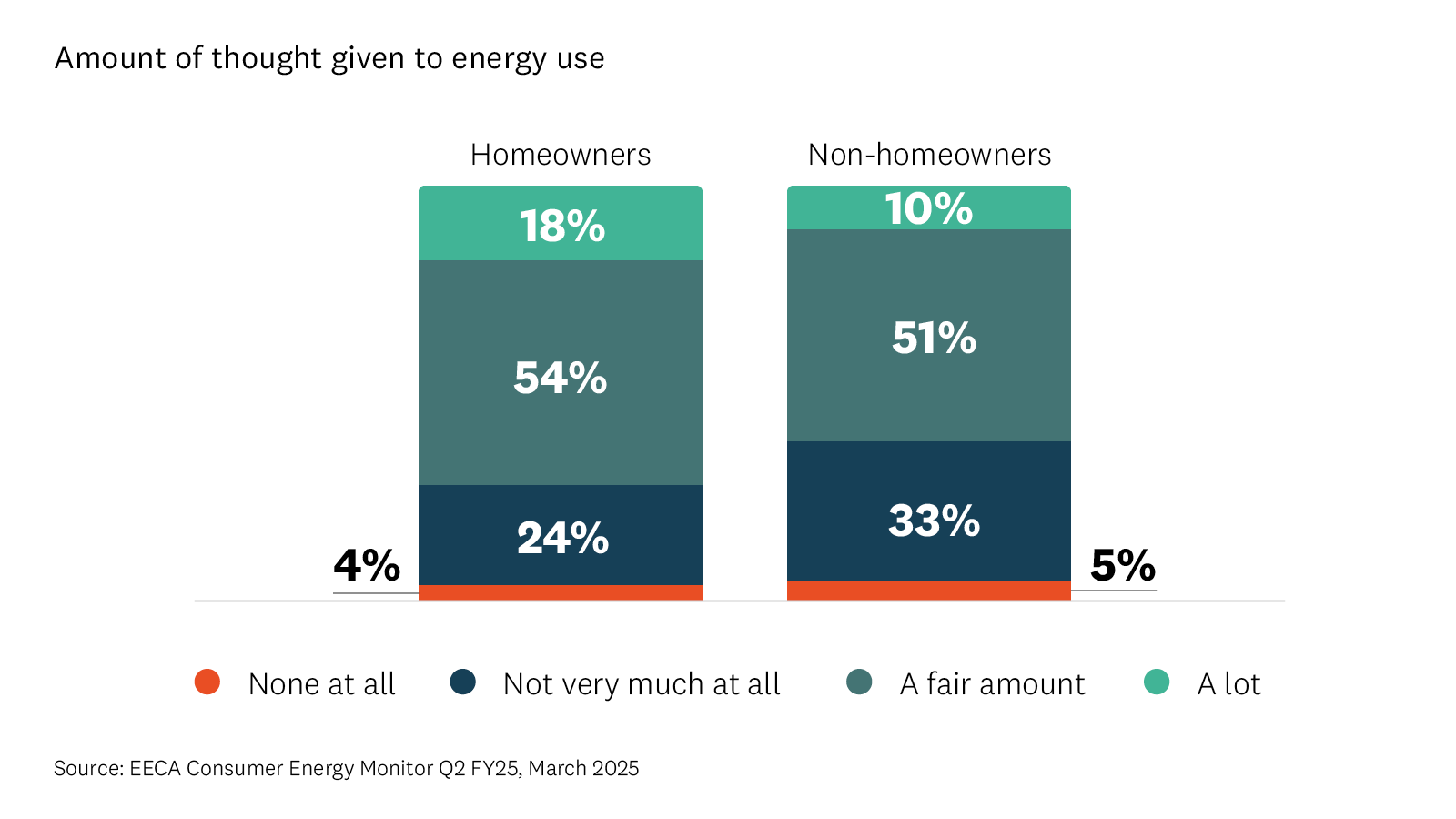
Financially challenged households are more likely to feel a lack of control over energy bills.
Over half (53%) of financially challenged households report that they worry about their lack of control over energy bills. For households that are financially stable, four in ten (40%) still worry about this.
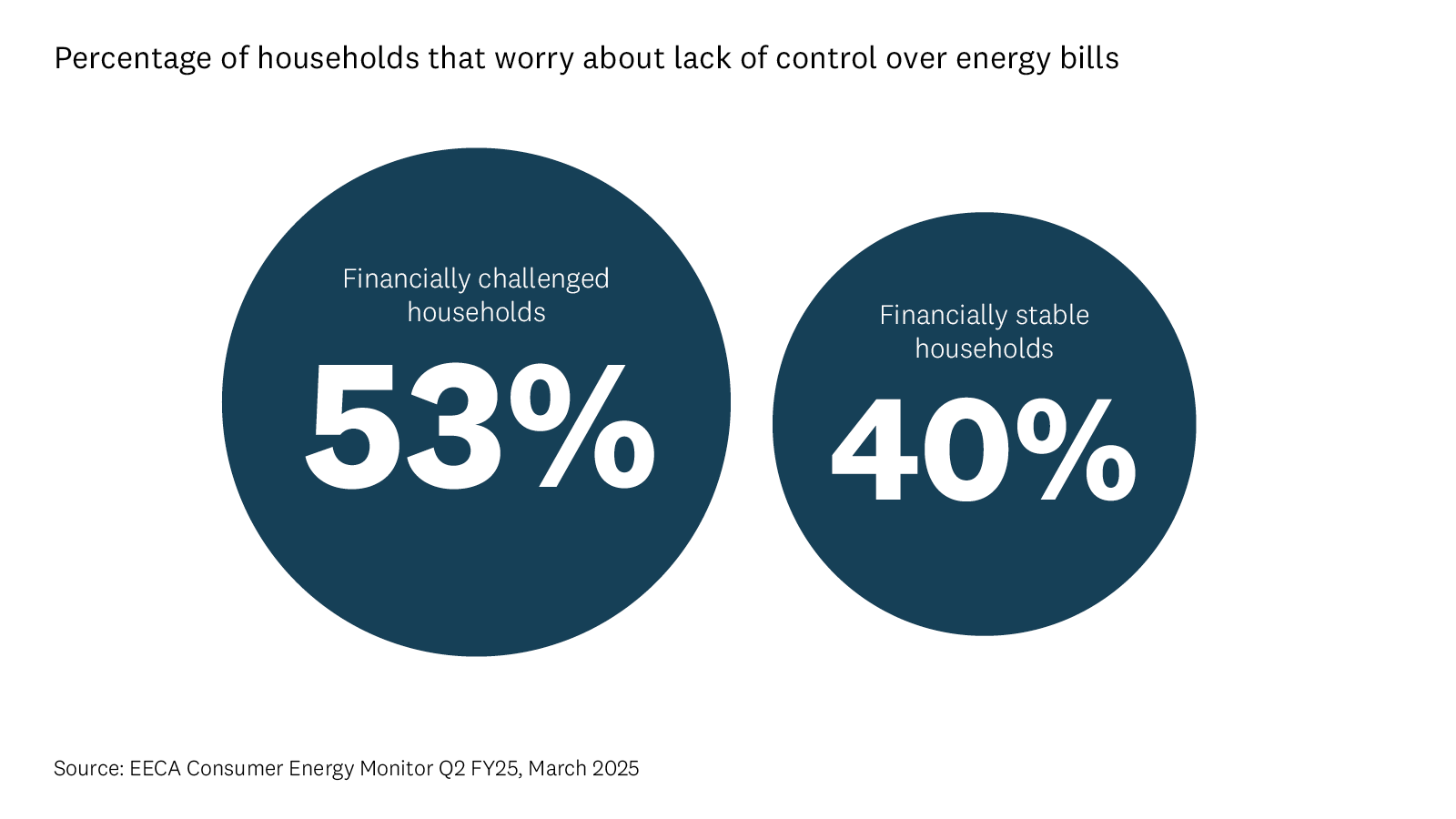
Thinking around energy use is largely driven by reducing money spent on energy.
This is true across households, though environmental considerations are more likely to be a reason for financially stable households (16%) to give attention to their energy use, than financially challenged households (10%).
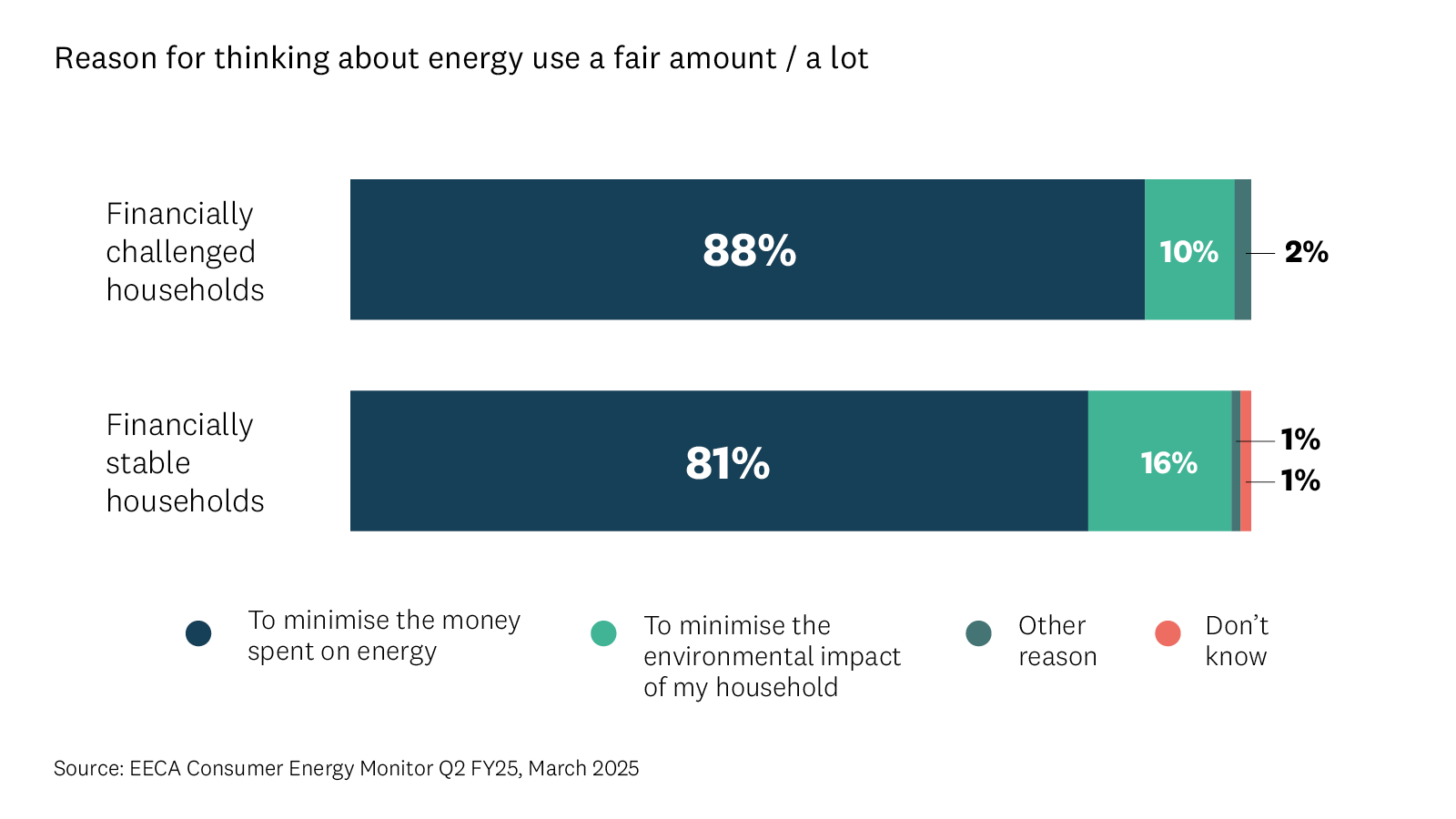
Financially stable homeowners are more likely to put effort into researching and purchasing efficient products.
On balance, financially stable homeowners are more likely to prioritise efficiency when buying appliances (63% tend to prioritise efficiency). This is particularly stark when comparing them to financially challenged non-homeowners (30% tend to prioritise efficiency). They are also more willing to put time and effort into researching energy efficiency in the home, with 68% agreeing with this sentiment, compared to 52% of financially challenged non-homeowners.
